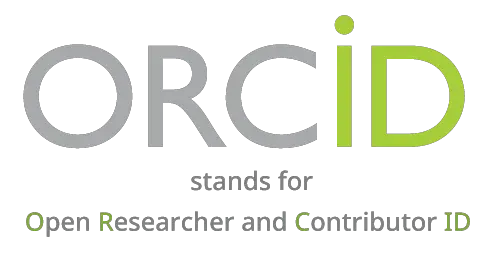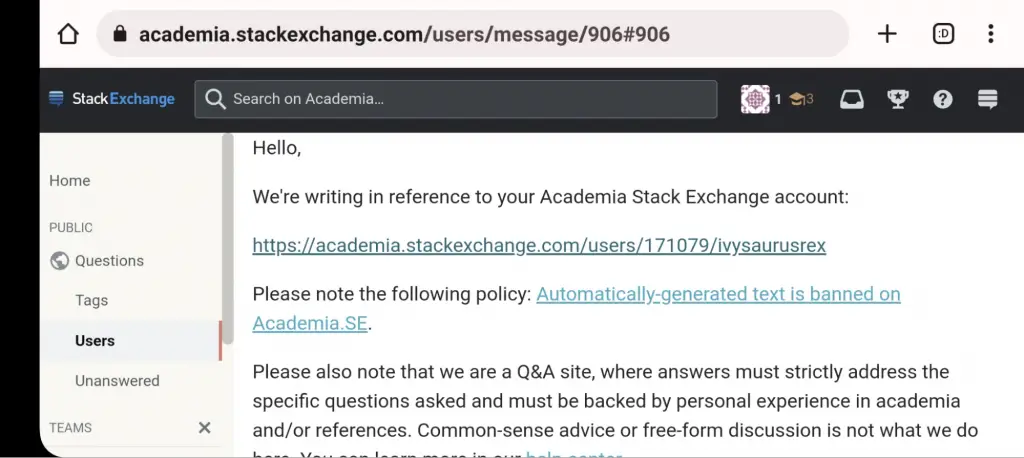Want to break free from scholarly isolation? Uncover the best academic networking and collaboration platforms to transform your research journey.
Have you ever found yourself submerged in heaps of academic papers, isolated in the pursuit of a research question that burns within your curious mind? Although occasionally necessary, the seclusion of academic research can stifle innovation and create echo chambers.
The antidote lies in robust academic networking and collaboration – the highway to diverse knowledge exchange.
Table of Contents
Overview
Academic networking and collaboration platforms are a global gathering of brilliant minds convening to discuss, debate, share, and collaborate in a virtual world.
These platforms are fertile grounds that nurture academic growth, streamline collaboration, and enhance scholarly visibility. They offer diverse benefits, from tracking citations and managing references to facilitating interdisciplinary conversations.
Let’s embark on an enlightening journey through some of the top networking and collaboration platforms.
Best Academic Networking and Collaboration Platforms
#1. Academia.edu – Best for Sharing Research Papers
Summary
- Global hub connecting millions of researchers
- Streamlines the process of sharing papers
- Keeps you abreast with state-of-the-art research in your field
Academia.edu is a bustling online city square solely dedicated to the academic world. This platform provides an extensive environment for scholars to share papers, receive feedback, and stay updated with the latest research in their areas of interest.
What are the benefits of Academia.edu?
- Direct Communication: Academia.edu offers a platform to directly connect with researchers around the world, facilitating communication and collaboration.
- Paper Sharing and Discoverability: Users can share their own academic papers and discover those written by others, enhancing exposure and learning.
- Analytics: Provides detailed statistics on who is reading and citing your work, thus helping to track the impact of your research.
If your research papers crave a global platform and you’re keen on networking with academicians, Academia.edu has a lot to offer. However, the platform’s push towards premium memberships might be a concern for some.
How much does it cost?
- Premium: $9 per month
Source: https://www.academia.edu/
#2. Google Scholar – Best for Broad Literature Search and Citation Tracking
Summary
- Comprehensive database for literature search
- Efficient citation tracking system
- Authoritative profile management
Google Scholar operates like a relentless detective in the realm of academia. With its wide reach, it helps you navigate the vast sea of literature and keeps a sharp eye on who cites your work.
This platform ensures you’re not just studying, but also effectively weaving your research into the global academic network.
What are the benefits of Google Scholar?
- Broad Scope: Google Scholar gives access to a vast array of academic articles, theses, books, conference papers, and patents across many subject areas.
- Citation Tracking: This platform sasy tracking of citations to articles, which helps measure the impact of research.
- Personal Scholar Profiles: Users can create profiles displaying their publications, facilitating professional visibility.
Google Scholar is a formidable tool for literature search and citation tracking. But, if you’re seeking a platform that offers active networking or community building, you may need to explore further.
How much does it cost?
- Free
Source: https://scholar.google.com/
#3. LinkedIn – Best for Professional Networking Across All Fields
Summary
- Premier platform for professional networking
- Provides job listings and career opportunities
- Facilitates industry-academia interactions
Like an interactive professional directory on steroids, LinkedIn goes beyond traditional networking. It bridges the gap between academia and industry, fostering connections and conversations that could ignite your next career-defining opportunity.
What are the benefits of LinkedIn?
- Professional Networking: Allows for networking with professionals not only from academia but also from various industries.
- Job Market Insight: This platform provides information about job opportunities, trends, and professional development resources.
- Group Discussions: LinkedIn enables engagement in professional group discussions, offering space to share insights and gain knowledge from peers.
LinkedIn is your go-to if you’re seeking to extend your network beyond academia. While it might not be the primary choice for academic research, it’s an invaluable platform for career development and industry insights.
How much does it cost?
- Premium starts at $39.99 per month to $149.99 per month
Source: https://www.techtarget.com/
#4. Mendeley – Best for Reference Management and Discovery of New Research
Summary
- Robust tool for reference management
- Curates personalized research recommendations
- Facilitates collaborative work on papers
Mendeley is like the diligent research assistant you always needed. This tool handles your references with deftness, suggests new research tailored to your interests, and allows you to collaborate on papers with your team.
What are the benefits of Mendeley?
- Reference Management: This tool helps to organize, read, annotate, and cite literature effectively, easing the research process.
- Collaborative Work: Mendeley enables sharing and collaborating on documents with others privately or in public groups.
- Research Network: It also connects with a global research community, providing updates from the fields of interest.
Mendeley is a handy tool for handling references and discovering new research. However, its networking capabilities are limited compared to other platforms.
How much does it cost?
- Basic: $4.99 per month
- Pro: $9.99 per month
- Max: 14.99 per month
Source: https://www.mendeley.com
#5. ResearchGate – Best for Interdisciplinary Networking and Collaboration
Summary
- Dedicated platform for researchers across disciplines
- Helps share and discover scholarly content
- Fosters collaboration and discussion among peers
ResearchGate is a cross-disciplinary academic hub, buzzing with intellectual dialogue, paper sharing, and collaboration. The platform stands out by facilitating academic networking across disciplines, fostering a rich scholarly exchange.
What are the benefits of ResearchGate?
- Collaborative Projects: ResearchGate enables sharing and following of research projects, helping foster collaborations.
- Q&A Forum: A platform to ask research-related questions and receive answers from professionals in the field.
- Open Reviews: It also offers a space for open peer review, enhancing the transparency and rigor of research.
ResearchGate offers an excellent platform for interdisciplinary networking and collaboration. However, its utility may be limited if you’re not involved in active research or uncomfortable with content behind memberships.
How much does it cost?
- Free
Source: https://www.researchgate.net/
#6. ORCID – Best for Ensuring Researcher Uniqueness
Summary
- Provides unique identifiers for researchers
- Prevents identity confusion in academic work
- Allows easy tracking of individual research contributions
ORCID is like your unique academic fingerprint, ensuring your work never gets mixed up with someone else’s. It grants researchers unique identifiers, making it easier to track and attribute your academic contributions.
What are the benefits of ORCID?
- Unique Identifier: It provides a unique digital identifier that distinguishes a researcher and ensures their work is correctly attributed.
- Integration: This tool is broadly integrated with many publishers, funders, and institutions, allowing for ease of workflow.
- Record Keeping: ORCID keeps a track of all professional activities (publications, grants, patents etc.) in a centralized place, ensuring the researcher’s profile is up-to-date.
ORCID is a valuable tool for ensuring researcher uniqueness, but it’s not a full-fledged networking platform. It’s a must-have for academics, though its importance might be underestimated by those with less common names.
How much does it cost?
- Free
Source: https://orcid.org/
#7. Publons – Best for Tracking Peer Reviews and Editorships
Summary
- Tracks and validates peer review contributions
- Supports discovery of editorial opportunities
- Facilitates open recognition for reviewers
Picture a stage where your often unnoticed work as a peer reviewer or editor gets the spotlight. Publons does just that, giving recognition to your behind-the-scenes contributions to the scholarly world.
What are the benefits of Publons?
- Recognition of Review Work: Provides credit for peer review and editorial work which is often overlooked in academia.
- Review History: Maintains a verifiable record of a researcher’s contribution to peer review and editorial work.
- Training: Offers resources and training for peer reviewing, improving review quality and skills.
Publons excels at recognizing the often-invisible labor of peer review and editorship. It may have limited scope for broader academic networking, but its unique focus makes it stand out.
How much does it cost?
- Free
Source: https://publons.com/
#8. OSF (Open Science Framework) – Best for Full Project Lifecycle Management
Summary
- Manages project lifecycle from planning to publishing
- Supports collaboration and data sharing
- Champions the cause of open science
OSF is like your research’s trustworthy custodian, guiding it from its infancy (planning) to maturity (publishing). Besides collaboration, it offers comprehensive tools to manage your project’s life cycle while championing the cause of open science.
What are the benefits of OSF?
- Project Management: Assists in managing projects with a suite of collaborative tools, aiding the organization of research.
- Open Science: Promotes transparency and reproducibility by enabling public sharing of datasets, protocols, and research outputs.
- Cross-Platform Integration: Supports integration with many other tools like GitHub, Google Drive, and Mendeley.
For academics seeking a comprehensive platform to manage research projects from start to finish, OSF is an excellent tool. Its learning curve may be a hurdle, but the benefits it offers for project management and open science make it worth the effort.
How much does it cost?
- Free
Source: https://osf.io/
#9. GitHub – Best for Collaborative Coding and Version Control
Summary
- Ideal for coding collaborations and version control
- Provides open-source platforms for various projects
- Hosts a vibrant community of developers
GitHub is like a beehive for coding enthusiasts. The platform thrives with collaborative projects, offering unparalleled version control. It’s a dynamic platform where coders and researchers converge to build and refine code.
What are the benefits of GitHub?
- Version Control: GitHub offers a robust version control system, facilitating collaborative coding and data analysis projects.
- Repository: This tool allows the hosting of programming projects and open access of code, promoting open source development.
- Community: Large community of users contributes to learning, problem-solving, and improvement of code.
If your research involves coding, GitHub is a must-have tool. While it might be intimidating for beginners, the benefits it offers for collaborative coding and version control are unmatched.
How much does it cost?
- Starts from $4 per user
Source: https://github.com/
#10. StackExchange (Academia) – Best for Question-and-Answer Format Discussions Related to Academia
Summary
- Q&A platform specifically for academia
- Facilitates sharing of knowledge and advice
- Hosts a diverse community of researchers and academics
StackExchange (Academia) is like your reliable academic counsel. This Q&A platform fuels robust discussions on academic issues, connecting you with a community eager to share knowledge and insights.
What are the benefits of Stack Exchange?
- Expertise: Provides a forum for asking and answering questions related to academic life, drawing from a wide pool of experiences and expertise.
- Categorized Discussions: Allows for categorization of discussions by topics, making it easier to find relevant information.
- Reputation Points: Users earn reputation points for quality questions and answers, encouraging a high standard of contributions.
StackExchange (Academia) shines as a Q&A platform specifically for academic discussions. While it’s not suitable for document sharing or formal networking, it’s an excellent resource for tapping into collective academic wisdom.
How much does it cost?
- Free
Source: https://academia.stackexchange.com/
#11. Reddit – Best for Informal Academic Discussions and Advice
Summary
- Platform for informal academic discussions
- Wide variety of topic-specific communities
- Enables anonymity in conversation
Reddit is a bustling online tavern where academic conversations flow as freely as the drinks. With its countless communities and casual tone, it opens up a world of informal academic discussions and advice.
What are the benefits of Reddit?
- Subreddit Communities: Offers numerous academic subreddits, enabling discussion and advice on niche topics.
- Anonymous Interaction: Allows users to maintain anonymity, encouraging open and honest discussion.
- Global Perspectives: Provides a platform to interact with a diverse, worldwide user base, broadening perspectives on various topics.
Reddit is a treasure trove for those seeking informal academic discussions. While it’s not ideal for formal networking, the depth and breadth of its communities make it a unique platform for candid conversations.
How much does it cost?
- Free
Source: https://www.redditinc.com/
#12. Quora – Best for Receiving Expert Answers and Sharing Knowledge
Summary
- Q&A platform with diverse range of topics
- Hosts experts across various fields
- Great for knowledge sharing and learning
Quora is like a dynamic global seminar, buzzing with questions and brimming with expert answers. This social networking site is an invaluable platform for sharing your knowledge and quenching your thirst for insights from various fields.
What are the benefits of Quora?
- Diverse Topics: Covers a wide range of topics, enabling users to ask and answer questions on virtually any subject.
- Expert Answers: Often features responses from industry and academic experts, providing authoritative answers.
- Personalized Feed: Users can follow topics of interest to customize their feed, staying updated on their preferred subjects.
Quora is a versatile platform for knowledge sharing and gaining expert insights. While it may not be a traditional academic networking tool, its strength lies in the diversity of its topics and the expertise of its contributors.
How much does it cost?
- Free
Source: https://www.quora.com/
#13. Facebook – Best for Building Community and Networking in Field-Specific Groups
Summary
- Popular platform for building communities
- Houses a multitude of field-specific groups
- Allows for event organization and announcement sharing
Facebook might be known for connecting friends and families, but it’s also a melting pot for academic networking. With its diverse field-specific groups and community-building features, it’s a trove of academic possibilities.
What are the benefits of Facebook?
- Social Networking: Connects researchers on a social level, enabling informal discussions and relationship building.
- Academic Groups: Hosts numerous academic and research-focused groups for collaboration, discussion, and sharing of resources.
- Events: Provides a platform for promoting and discovering academic events, lectures, and webinars.
Facebook is one of the most useful social networking sites for academic networking due to its wide reach and diverse groups. However, it may not cater to every academic need and its data handling practices might give privacy-conscious users pause.
How much does it cost?
- Free
Source: https://edu.gcfglobal.org/
#14. Twitter – Best for Sharing Quick Research Updates and Engaging in Academic Discussions
Summary
- Microblogging social media platform ideal for quick updates
- Connects academics and researchers globally
- Hashtag system enables focused conversations
Twitter is the academic equivalent of the town crier, broadcasting research updates in quick, digestible bites. Its global reach and hashtag system offer unique ways to engage with the academic community.
What are the benefits of Twitter?
- Real-Time Updates: Provides real-time updates from conferences, symposia, and fellow academics, keeping users up to date.
- Networking: Enables networking with a broad audience, allowing for the sharing and promotion of research.
- Hashtag Use: Allows for the organization of content using hashtags, aiding discoverability of research topics.
If brevity is your thing, Twitter excels at disseminating quick research updates. Its potential for distractions and information overload should be considered, but its wide reach and hashtag-driven discussions can be invaluable. Therefore, Twitter is one of the best academic social networks.
How much does it cost?
- Free
Source: https://about.twitter.com/
#15. Scopus – Best for Abstract and Citation Searching
Summary
- Specializes in abstract and citation searching
- Houses extensive database of research literature
- Provides analytical tools to track citation impact
Scopus is akin to a scholarly lighthouse, guiding researchers through the dense sea of abstracts and citations. Its expansive database and analytical tools make it a valuable asset for any academic.
What are the benefits of Scopus?
- Comprehensive Database: Offers access to a large database of peer-reviewed literature from various fields.
- Analytic Tools: Provides various tools for analyzing research output and trends, supporting academic decision-making.
- Author Profiles: This tool facilitates the tracking of an author’s work and citation impact, aiding reputation management.
Scopus is a powerhouse for abstract and citation searching, though it doesn’t offer much in the way of networking or collaboration. While it is a subscription-based service, the depth and breadth of its tools and database can justify the cost for many researchers.
How much does it cost?
- Custom price
Source: https://www.scopus.com/
Conclusion
Academic networking and collaboration platforms are the lifeblood of today’s scholarly community. They offer many opportunities for sharing research, connecting with fellow academics, and advancing your academic career.
Whether you are looking for strictly academic or social media platforms, these blog post provide the tools and resources to take your academic journey to new heights.

















